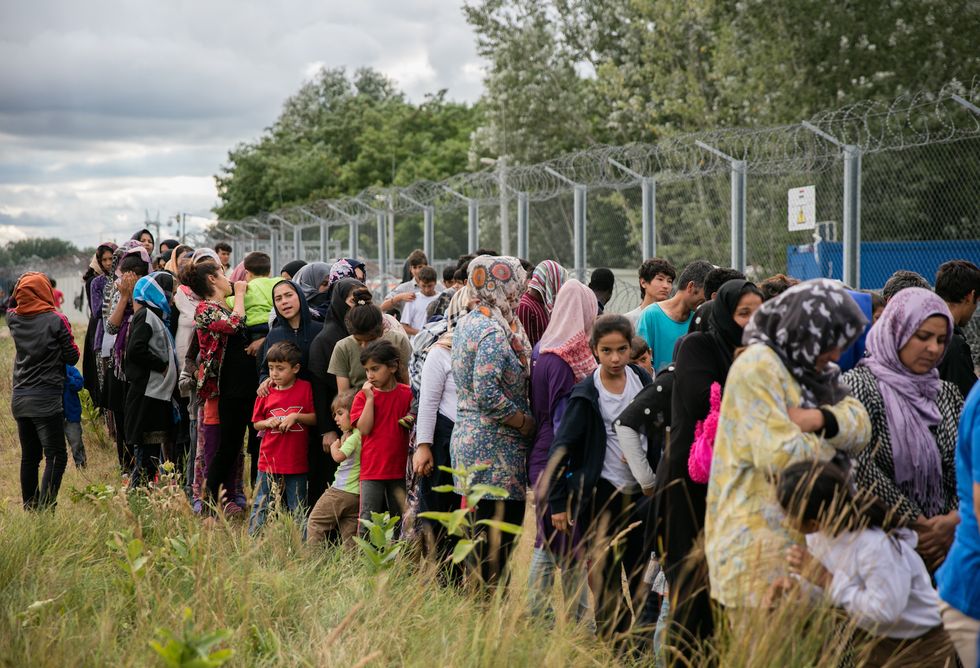
Migrants line up for food being delivered by volunteers at a camp besides the border fence close to the E75 Horgas border crossing between Serbia and Hungary. (Matt Cardy/Getty Images)

Lawmakers are demanding answers from the White House after President Barack Obama reportedly accepted up to 2,500 refugees from countries with strong terrorism ties in a concealed backroom deal after Australia allegedly refused to relocate the refugees in their country.
The agreement, which was inked in November, was described by Australian Prime Minister Malcolm Turnbull as a "one-off" deal. However, the State Department, for unknown reasons, has reportedly classified the details of the exchange.
What we do know, however, is that the U.S. will be accepting an unknown number of thousands of refugees currently held in offshore detention centers in Nauru and Papua New Guinea. They're being held there after Australia "rejected" them.
According to a recent report from Fox Business, the lack of details about the deal have many lawmakers demanding answers from the Obama administration.
In a recent letter to Secretary of Homeland Security Jeh Johnson and Secretary of State John Kerry, Sen. Chuck Grassley (R-Iowa) and Rep. Bob Goodlatte (R-Va.) condemned the "concerning situation" for its lack of transparency. They wrote:
First, your departments negotiated an international agreement regarding refugees without consulting or notifying Congress.Second, the agreement and the number of refugees to be resettled has been deemed by your departments as classified, thus the American people are left in the dark as to the rationale of this agreement.
Third, the individuals being resettled are coming from countries of national security concern. In fact, two of the countries are officially designated by the State Department to be State Sponsors of terrorism.
Indeed, the countries of origins of the refugees are national security concerns. They include: Iran, Sri Lanka, Pakistan, Afghanistan, Somalia, Iraq and Sudan — all of which have extremely close ties to terrorism and Islamic extremism. There are refugees who are also considered "stateless," which again poses a security threat as the vetting process becomes much more difficult for people who lack proper records.
Finally, the congressmen demanded to know why Australia and other countries refused the refugees, what other countries are doing to help, what kind of precedent this sets for future U.S. policy and how the government can avoid this in the future.
According to the letter, the departments offered to brief the congressmen on the deal and why it's being considered classified by the government. But for Grassley and Goodlatte, that wouldn't solve the lack-of-transparency issue: "[W]e also firmly believe that the American people should be fully aware of the specific details of this agreement and why it was done in secret," they wrote.
The concern comes amid the latest lone-wolf terror attack, which took place last Monday at the Ohio State University and was perpetrated by an 18-year-old Somalian refugee student.